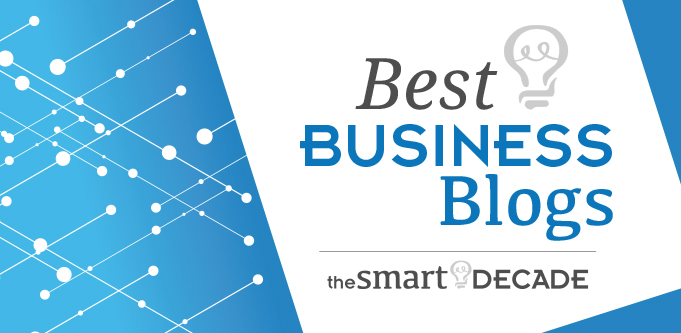David Meerman Scott on AI
Welcome back, Rankers! In this insightful conversation with David Meerman Scott, we explore the transformative impact of AI on marketing, content creation, and business strategy. David shares his expertise on how businesses can leverage AI to enhance efficiency, personalise content, and create meaningful human connections in a digital-first world. We also discuss the ethical considerations, challenges, and future opportunities that AI presents. If you’re curious about where AI is heading in marketing and how to stay ahead of the curve, this discussion is a must-read.
What I Learned:
- How AI is revolutionising content creation and marketing strategies
- The importance of using AI with your own data for unique insights
- Ethical concerns and biases in AI-generated content
- The rise of AI agents and their impact on business automation
Transcript
Interview Transcript: Jim Stewart & David Meerman Scott
Jim Stewart: For those of you who don’t know David Meerman Scott, David is a visionary marketing strategist, bestselling author, and dynamic speaker. He’s known for his pioneering work in the realm of digital marketing and PR. He’s the mind behind several influential books, including The New Rules of Marketing and PR. If you haven’t read that, you really should. I think it’s in its 9th or 10th edition now.
David Meerman Scott: 9th edition, Jim. It’s been translated into 29 languages and has become a staple in modern business education.
Jim Stewart: David has spoken on all seven continents about how businesses can leverage real-time strategies to grow in today’s fast-paced, digital-first world. His insights on AI for content creation and his advocacy for creating genuine human connections in an era of digital chaos make him a leading voice in the marketing industry. He not only challenges conventional marketing practices but also offers practical, actionable strategies for companies of all sizes.
AI’s Impact on Marketing
Jim Stewart: I’ve been wanting to talk to you for a while now, particularly since ChatGPT hit the scene. There are so many things you’ve said over the years about marketing and PR that have become even more relevant with AI. I’d love to get your overall take on what’s happened in the last two years and where you think we’re heading in the next six months because, honestly, 12 months feels too far ahead!
David Meerman Scott: Absolutely transformational. It’s super important for everyone in marketing to understand how AI can be applied. When ChatGPT first appeared, people started using it to create content, but the real question is: What data is it using to create that content? Initially, people would just tell it to write a blog post on B2B marketing, but the problem was that this wasn’t original content. It often resulted in generic, uninspired writing because it was pulling from the internet without true authorship.
What marketers quickly realised is that these tools are much more valuable when applied to your own content. For example, right now, we’re having this conversation. You can transcribe it using AI, then use ChatGPT to summarise it, generate key takeaways, and even create headlines, metadata, and social media posts. What used to take hours now takes minutes.
AI also allows us to scale content. For example, I use Lately—a tool that takes long-form content like a blog post and slices it into short-form posts for LinkedIn, Instagram, or Twitter. The key thing is: It’s your own content. Many people jump into AI without realising that using publicly available internet content won’t differentiate them—it’s using your own content that creates real value.
Quality Over AI-Generated Generic Content
Jim Stewart: That’s very true. We still see a lot of generic AI-generated responses on platforms like LinkedIn. And while Google doesn’t necessarily care if content is AI-generated, it does care about quality. If you’re just regurgitating generic content, then it’s not going to rank well.
David Meerman Scott: Exactly. And audiences know when something is AI-generated. One of my personal indicators? If I see a piece end with ‘In conclusion’ or ‘Conclusion’, chances are it was generated by AI. AI loves using those phrases.
Another powerful way to use AI effectively is to build your own database. I took every blog post I’ve written over 20 years—almost 2,000 blog posts—along with six of my books and put them into a private AI database. That’s nearly 10 million words of my content. Now, when I query an AI engine, I’m not pulling from the public internet; I’m getting responses based solely on my own work. That allows me to generate first drafts of blog posts, pitch letters, and even refine messaging for speaking engagements.
Imagine a company with 100 salespeople: If you could transcribe every customer interaction, put that data into a system, and let AI analyse it, you’d gain insights into the most common questions, the most effective responses, and even which sales reps are performing best. AI applied to your own data is where the magic happens.
AI in SEO & Digital Marketing
Jim Stewart: That’s exactly how we approached it. When ChatGPT first launched, we noticed it was giving terrible SEO advice. Why? Because AI learns from the internet—and there’s a lot of bad SEO advice out there! That’s why we created a custom AI model trained specifically on our 20 years of SEO content, ensuring the insights are actually correct.
David Meerman Scott: That’s a brilliant approach. AI lacks unique perspectives unless you give it access to them. Imagine taking everything you’ve ever written, dropping it into a database, and then querying your own expertise. That’s where AI becomes incredibly powerful.
AI-Generated Communication & Ethical Concerns
Jim Stewart: AI-generated emails are another interesting area. If I detect that an email was clearly written by AI with no personal thought, I find it offensive. The classic ‘Hope this email finds you well’—we all know that one!
David Meerman Scott: Absolutely. AI-generated comments on LinkedIn are brutal. Push a button, and it generates something like ‘Great blog post, Jim!’—zero personality, zero human touch. The key is building humanity into AI interactions.
In terms of ethics, one issue that stands out is bias. For example, if you ask AI to generate an image of a doctor and it only produces white male doctors, that’s a serious issue. My daughter is a half-Japanese woman and a doctor—AI needs to represent reality more accurately. These biases are real problems.
AI Agents: The Future of Business Automation
Jim Stewart: One of the most exciting things for me is AI agents—autonomous AI systems that handle tasks on their own.
David Meerman Scott: Yes! AI agents are already revolutionising industries. I recently learned about a company with 500-600 salespeople. Traditionally, when a lead came in, salespeople would spend 20-30 minutes researching the prospect before reaching out. Now, AI agents handle all that research automatically, pulling LinkedIn profiles, company backgrounds, and even drafting tailored outreach scripts. By the time a salesperson receives a lead, they have a fully prepared game plan—saving hours of manual work.
This concept of AI-driven efficiency is a massive opportunity. It’s not just for big enterprises; small businesses and solo entrepreneurs can benefit just as much. We’re heading towards a world where one-person, billion-dollar companies will be possible thanks to AI agents handling everything from sales to customer service to content generation.
The Future of AI in Marketing & Education
Jim Stewart: Looking ahead, AI is not just transforming business—it’s changing education too. But some schools are outright banning AI.
David Meerman Scott: It’s absurd. Banning AI is like banning calculators in the 1980s or computers in the 1990s. Instead of banning it, schools should be teaching AI literacy—particularly prompt engineering, which is a critical skill for the future.
Jim Stewart: This has been a fantastic conversation, David. Thanks so much for your time. Everyone—go read David’s books!
David Meerman Scott: Thanks, Jim! Looking forward to catching up again soon.
Hopefully you enjoyed this interview and got something out of it. If you have any questions about AI and how to leverage it in your business, reach out. We’re constantly developing tools that help both our business and our clients, and we’d love to share our insights with you. You can reach me at [email protected]
Thanks for watching. Don’t forget to like, share, and subscribe. See you next week!
And don’t forget! We’re excited to remind you of our two groundbreaking reports that will catapult your business into the AI-driven future: The SAMScrum Report—a comprehensive analysis that will provide actionable insights to optimise your website for the AI era, and the Brand Intelligence Report – that reveals brand sentiment, competitive positioning, and product associations in the AI realm.
The SAMScrum Report: Your Website’s Secret Weapon
- Analyses your entire online presence: SEO, Google Ads, UX/UI
- Identifies revenue-killing issues in your digital strategy
- Implements changes that have DOUBLED revenue for our clients in months
The Brand Intelligence Report: Your AI Visibility Booster
- Examines your brand through the lens of leading AI models (Claude, ChatGPT, Google Gemini)
- Reveals brand sentiment, competitive positioning, and product associations in the AI realm
- Uncovers hidden opportunities to dominate your market in the age of AI
These aren’t just reports. They’re your battle plan for the AI revolution. (And you get a FREE Brand Intelligence Report with every SAMScrum purchase!)
Check out the reports here https://research.stewartmedia.com.au/

Jim’s been here for a while, you know who he is.


